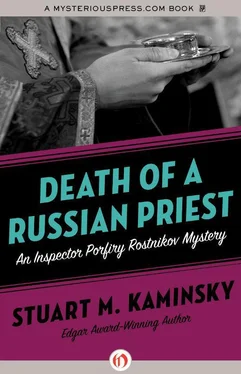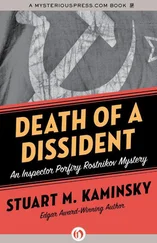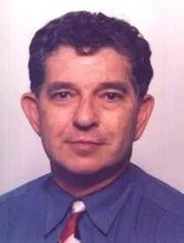Stuart Kaminsky - Death Of A Russian Priest
Здесь есть возможность читать онлайн «Stuart Kaminsky - Death Of A Russian Priest» весь текст электронной книги совершенно бесплатно (целиком полную версию без сокращений). В некоторых случаях можно слушать аудио, скачать через торрент в формате fb2 и присутствует краткое содержание. Год выпуска: 2012, Жанр: Полицейский детектив, на английском языке. Описание произведения, (предисловие) а так же отзывы посетителей доступны на портале библиотеки ЛибКат.
- Название:Death Of A Russian Priest
- Автор:
- Жанр:
- Год:2012
- ISBN:нет данных
- Рейтинг книги:3 / 5. Голосов: 1
-
Избранное:Добавить в избранное
- Отзывы:
-
Ваша оценка:
- 60
- 1
- 2
- 3
- 4
- 5
Death Of A Russian Priest: краткое содержание, описание и аннотация
Предлагаем к чтению аннотацию, описание, краткое содержание или предисловие (зависит от того, что написал сам автор книги «Death Of A Russian Priest»). Если вы не нашли необходимую информацию о книге — напишите в комментариях, мы постараемся отыскать её.
Death Of A Russian Priest — читать онлайн бесплатно полную книгу (весь текст) целиком
Ниже представлен текст книги, разбитый по страницам. Система сохранения места последней прочитанной страницы, позволяет с удобством читать онлайн бесплатно книгу «Death Of A Russian Priest», без необходимости каждый раз заново искать на чём Вы остановились. Поставьте закладку, и сможете в любой момент перейти на страницу, на которой закончили чтение.
Интервал:
Закладка:
“Like your daughter?” asked Tkach.
The minister did not answer.
“How did you know about the death of Grisha Zalinsky?” Elena asked again.
“A grateful friend in the law kindly informed me,” he said. “You are not drinking? Too strong?”
“Too hot,” she said.
“And is it too hot for you, Inspector?” he asked Tkach.
“No,” said Tkach. “I am a deputy inspector.”
“Yes,” said Durahaman. “You are both young. Experience with coffee and life are very helpful when one wishes to stay unburned and alive.”
“Your daughter is still missing,” said Tkach. “But we will find her.”
“It is your job to say that, Deputy Inspector,” Durahaman said, reaching out for the coffeepot. “You’d like a bit more? Not too strong, is it?”
Tkach accepted the coffee without putting the cup back in the saucer. Hassam Durahaman smiled at Elena. His teeth were white. She found him very charming.
“I have sent my limited staff in search of Amira,” he said. “I have a few humble resources.”
“Like your friend in the law?” asked Tkach.
“Yes, like my friend in the law. In my country young men are taught to be polite to those in positions of power and authority.”
“I am sure,” said Tkach, putting down his cup and rising, “that our superiors and your friends will keep you informed about our efforts to find your daughter. Now, we must get back to work.”
“The young lady has not had her coffee,” Durahaman said calmly, “and I have something to tell you.”
Tkach stood awkwardly for a moment. His fingers, he knew, were burned, probably blistering. He looked at Elena and sat again, arms out on the arms of the chair as were those of his host. Elena tested the handle of the cup. It was still hot but manageable. She brought it to her lips.
“A woman called me several hours ago,” Durahaman said. “She said that she was sure she could locate my daughter. She wanted confirmation of the reward which the police had indicated I would pay. I asked her what police and she described a handsome young man with unruly hair and a very lovely young woman.”
Durahaman smiled again and toasted Elena with his cup. “I confirmed the reward,” he said, looking now at Tkach. “In fact, I increased the reward and told her she would be paid in hard currency, French francs not American dollars. Do you know this woman?”
“Yes,” said Elena.
“I do not like people making offers on my behalf without my consent,” said Durahaman. “I do not pay extortion. My country and my people have learned a great deal from our enemies.”
“The Israelis,” said Tkach.
“Yes,” said Durahaman. “If this woman finds Amira, I do not intend to pay her. However, I expect you to meet her again, if necessary, tell her she will be paid, and get my daughter.”
“You want us to lie,” said Elena.
“As you already have in my name,” he reminded her. “It is not my honor that is in question. It is yours. It is growing late.”
As he rose slowly Elena hurriedly finished her coffee. “And,” he continued, “you have work to do.”
“There has been a murder,” said Tkach. He stood up with Elena. “The murder of a young man who knew your daughter well. She may be in danger. She may be dead.”
“I hope no one is foolish enough to harm her,” Durahaman said, holding out his hand to guide them toward the door. The meeting was definitely over.
“We will find the murderer,” said Tkach as they walked.
“The murder of the Jew is of no interest to me,” Durahaman said gently.
“No interest?” asked Tkach. “A Jew was your daughter’s … friend and you are-”
“-not interested,” said Durahaman. “Understand me. It is not Jews as a race I despise. It is Israel. I am a Semite, as are the Jews. My quarrel and that of my country is a political, not a racial, issue. Perhaps we shall speak again soon.”
The man who had served the coffee was standing outside the office door when Durahaman opened it. The man handed the police officers their coats and Durahaman stepped back inside the office and closed the doors without another word.
Tkach’s burned fingers tingled with electric pain as he put on his coat. The dark-haired man helped Elena on with hers and led them toward me front door.
“Your oil minister is descended from royalty?” asked Elena.
“Hassam Durahaman was born the fifth son of a street cleaner in Damascus,” the man said; “He did not learn to read or write until he was twenty-three. He has fought often, in many countries, has been severely wounded five times, and has lost his left lung.”
“Fascinating,” Sasha Tkach said sourly.
“He and his only surviving brother are known to have personally assassinated three traitors to Syrian liberty,” the man said, opening the front door for them. “He is a man of respect in my country, a man who is known for his determination and his successes.”
“And,” said Elena, stepping out onto the sidewalk, “what would he think of your telling us all of this about him?”
“He ordered me to tell you,” said the man. “And he ordered me to tell you that I had been so ordered.” With that the Syrian closed the door of the embassy.
“He lied,” said Tkach.
“About what?”
“His daughter and her Jewish lover,” he said. “He cares.”
“So what now?” asked Elena with a sigh. “Back to the Nikolai?”
“Now,” replied Tkach, “I go home and eat. I will meet you in front of the Nikolai at ten.”
“You think she is dead?” Elena said.
“Dead, kidnapped, on her way to Australia, who knows?” he said, rubbing his eyes. “We do what we must do. We look.”
“If she is still in Moscow and alive, I think it would be best for her if we are the ones to find her.”
“Or,” said Tkach, “if no one finds her.”
The night was growing cold, and Sasha was feeling the chill, but it did not seem to bother Elena.
“Go home and meet me at ten,” Sasha said, wanting to take care of the tingling pain in his fingers. He turned abruptly, shoved his hands in his pockets, and strode away.
EIGHT
Aleksandr was frightened when the policeman with the bad leg asked him to sit down. “I must get to the church for my grandfather’s funeral,” the boy said. “I have to help the new priest.”
“Have you had any of these cookies?”
The boy shook his head no.
“Would you like one?”
The boy shook his head yes. Rostnikov handed him a cookie, which the boy took warily.
“You can go now,” Rostnikov said.
The boy stood up and started toward the kitchen door. Then he stopped and turned toward the policeman.
“Yes?” asked Rostnikov, who had stood and was now putting on his coat, which Aleksandr had brought him.
“Have you ever eaten a hamburger at the McDonald’s?”
“Yes,” said Rostnikov. “I waited in line with my wife for four hours when it first opened. Now the lines are shorter because no one but Americans and Japanese can afford it. We had cheeseburgers called Big Macs and trench fries.”
“Were they good?”
“Very good,” said Rostnikov.
“Did they cost a lot of money?”
“Nine rubles,” said Rostnikov, limping toward the door. “I just thought of two questions for you.”
“Yes?” asked the boy.
“Did you love your grandfather?”
To his surprise Aleksandr found himself about to say no. No one had ever asked him this question and he had never directly thought of it. His grandfather was his grandfather, Father Merhum. His father had not encouraged him to love the priest, but people he met every day respected him as the grandson of Father Merhum.
Читать дальшеИнтервал:
Закладка:
Похожие книги на «Death Of A Russian Priest»
Представляем Вашему вниманию похожие книги на «Death Of A Russian Priest» списком для выбора. Мы отобрали схожую по названию и смыслу литературу в надежде предоставить читателям больше вариантов отыскать новые, интересные, ещё непрочитанные произведения.
Обсуждение, отзывы о книге «Death Of A Russian Priest» и просто собственные мнения читателей. Оставьте ваши комментарии, напишите, что Вы думаете о произведении, его смысле или главных героях. Укажите что конкретно понравилось, а что нет, и почему Вы так считаете.












